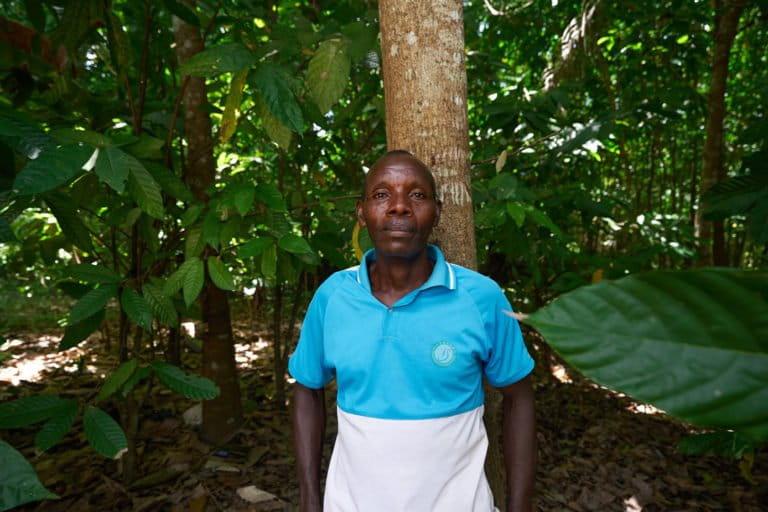- When the European Union introduces measures to protect forests, Sweden often tries to thwart them. But with opposition to its destructive forestry model growing inside the country, and a Swede about to become the new EU environment chief, things could be changing, a new op-ed states.
- The likely nomination of Sweden’s Jessika Roswall as EU Commissioner for the Environment this month could be a chance to change that narrative.
- “If she sees forests as more than just trees to exploit, Roswall could help instigate the long process of restoring Sweden’s battered reputation,” argues the Head of Conservation for BirdLife Sweden.
- This article is a commentary. The views expressed are those of the author, not necessarily Mongabay.
The evidence is irrefutable: Sweden has spent the last few years trying to frustrate any EU-proposed measures to protect forests.
A brief – and far from comprehensive – snapshot of this unhappy record reads as follows:
- In 2021, a leaked EU Forest Strategy draft revealed European Commission (EC) plans to reduce the clear-cutting that’s ravaged Europe’s forests. Sweden expressed its opposition– and the final wording on clear-cuts was severely weakened.
- In 2023, Sweden was one of only five Member States to vote against the EU’s Nature Restoration Law, which sets binding targets to end the spiral of destruction afflicting the EU’s ecosystems, including by improving the health of Europe’s chronically degraded forests.
- Again in 2023, Sweden opposed a policy designed to protect the planet: the Land Use, Land-Use Change and Forestry (LULUCF) Regulation, which accounts for emissions from land and forests. The Swedish government explicitly stated that it would not support the LULUCF proposals because of the restrictions they placed on Swedish forestry.
- Sweden’s stance on the groundbreaking EU Deforestation Regulation (EUDR) has also been marked by obstruction. The law aims to address the biggest driver of deforestation on the planet: clearing land for agricultural production, and was passed with huge public support and an overwhelming democratic mandate. Earlier this year, Sweden’s agricultural ministry (along with others) called for its implementation to be delayed – which the European Commission recently heeded by proposing a one year delay for the law’s application.
To these examples can be added others, including Sweden’s efforts to bulldoze key revisions out of the Renewable Energy Directive (RED), which could mitigate the appalling impact it has on climate and forests.

Destructive forestry model
Sweden’s motivation for opposing these policies is no mystery.
Over the past 50 years, the country has embraced an intensive clear-cutting forestry model that’s caused untold harm to nature and the climate, while resisting mitigating measures.
The guiding principle of this model is economic efficiency.
This ‘efficiency’ is achieved by clear-cutting resilient, diverse natural forests and replacing them with managed, uniform plantations to maximize yields: favoring the needs of an industry that seeks large volumes of pulp wood and timber at the cheapest price, regardless of the long-term consequences for the environment or the seasonal laborers they rely on.
Only 3% of Sweden’s forestry doesn’t involve clear-cutting, and every year a total area a third larger than Greater London is cut to the stump – destroying the habitats of threatened species, which has led to both a biodiversity crisis and a startling drop in Sweden’s forests’ ability to act as a carbon sink.

A new narrative?
Yet in Sweden, the tide of popular opinion could be turning. Awareness of the damage the industrial forestry model causes – and opposition to it – is growing.
The almost certain nomination of Sweden’s Jessika Roswall as EU Commissioner for the Environment this month, could be a chance to change the narrative, and the (justified) perception that her country is a wrench in the works of EU forest policies.
One of the core areas under her mandate will be improving European forests’ resilience. EU commissioners are not meant to represent their countries’ interests, but given Sweden’s track record and the fact that Roswall is from the ruling conservative Moderate party, some have expressed their concerns.
For instance, Swedish Green MEP Alice Bah Kuhnke told the media: “That Sweden has been given responsibility for the EU’s environmental work is worrying, considering how the government has driven Swedish environmental work to the bottom.”

For now, Roswall must be given benefit of the doubt.
Her nomination, however, comes at a critical moment: when the impacts of Sweden’s clear-cutting model are being felt across the EU, where carbon sinks are in free fall.
Meanwhile, progressive EU environmental legislation is facing concerted attacks from conservative policymakers.
What side of this increasingly divisive debate Roswall opts for could therefore have profound consequences for generations.
If she sees forests as more than just trees to exploit, Roswall could help instigate the long process of restoring Sweden’s battered reputation.
Daniel Bengtsson is Head of Conservation for BirdLife Sweden, and is an advocate on forest issues and renewable energy policies.
Banner image: A reindeer strolls through a bog in northern Sweden. Image by Alexandre Buisse via Wikimedia Commons (CC BY-SA 2.0).
See related:
Sweden’s ‘nature friendly’ reputation is being shot to pieces (commentary)
How unsustainable is Sweden’s forestry? ‘Very.’ Q&A with Marcus Westberg and Staffan Widstrand














